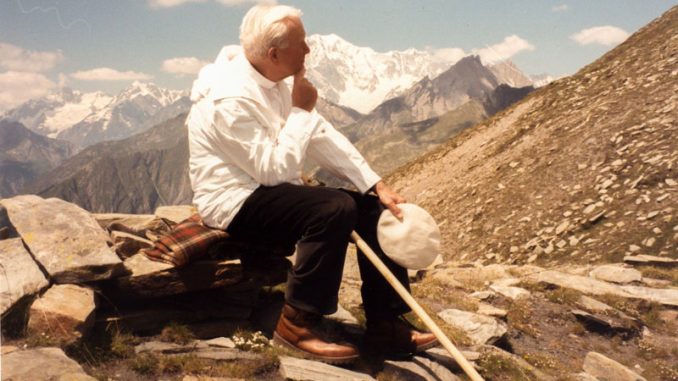
Every summer except this one, my religious community has gathered sisters from around the country and held workshops at our motherhouse. These include theological updating, reports on outreach, ministerial ventures, and reflection on what we call our 4 E’s: Evangelization, Education, Elder Care, and Ecumenism.
A couple of such presentations held in the early 1980s have stuck in my memory. A duo promoting Catholic effectiveness offered workshops on communications and leadership skills. While the topics had to do with prioritizing, setting agendas, conducting meetings, consensus-building, and such, the facilitators also remarked that the prime age for persons to assume positions of leadership would be from their mid-40s to mid-50s. The idea was that persons in that age bracket have accumulated significant experiences, envision new possibilities, have stamina, and also are sobered by the realization that they may have to live a long time with the consequences of their decisions and actions.
The time frame for this assessment of leadership potential is significant. We were merely 20 years out from the presidency of JFK, who assumed office at 43, and we were still in the earlier days of St. John Paul II, who had just turned 58 when he was elected pope — and was known for hiking and skiing.
Things look quite different these days. We have two candidates for the American presidency who are in their 70’s. We have Pope Francis leading the church at 83. The human life expectancy is significantly longer — for affluent people with good health care, anyway, and sometimes for less prosperous people who have simply lived lives which they deem blessed.
The Bible relatively rarely speaks of age. We know that Sarah, wife of Abraham, was considered beyond child-bearing, and Elizabeth, mother of John the Baptist, was described as being advanced in years. David was anointed to succeed Saul as king of Israel when he was “a ruddy youth.” The prophet Joel foresaw a time when, through the Spirit, sons and daughters would prophesy, the old dream dreams, and the young see visions. The Blessed Virgin was a young teen at the time of the Annunciation.
That perhaps gives us a clue as to why age matters and yet doesn’t. Those of us who are more seasoned tend to lean on experience, believe in life-long learning, and, with God’s grace, face challenges with a level of equanimity. We may, though, also just be sticks in the mud, chronic complainers and naysayers. Younger people may be better at seeing long-term possibilities, engaging new media, taking risks, and plugging away inexhaustibly for valiant causes. Or they may be short-sighted and reckless.
The point is that both God’s guidance and our discernment are needed when we encourage and elect. In our parishes, we may perceive that someone quite young or one considerably older might be called to priesthood, diaconate, religious life, lay ministry, or office in one of our organizations. Similarly, in political life we weigh gifts, moral commitments, character, and proposed policy as we prepare to vote. It is altogether likely that God needs a good mix of ages and experiences to get His kingdom work done and evangelize the world.

